SOP for University of British Columbia – Your Blueprint for Success
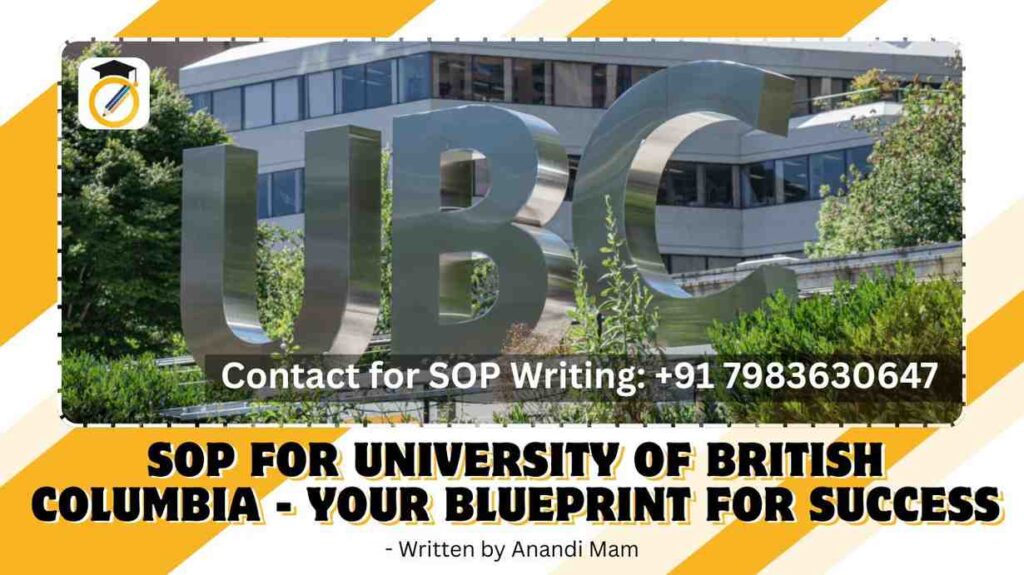
Crafting a Winning SOP for University of British Columbia Admissions
Hello future global leaders and scholars! As Professor Anandi, with over ten years of experience guiding students through the often-tricky journey of writing Statements of Purpose (SOPs) and personal statements, I’m thrilled to share insights specifically tailored for those aspiring to the prestigious University of British Columbia (UBC). The SOP for University of British Columbia is more than just an essay; it’s your opportunity to shine and convince the admissions committee that you are an ideal candidate.
UBC is renowned for its academic excellence, vibrant research environment, and commitment to global impact. Naturally, their admissions process is rigorous, and your SOP plays a pivotal role. Many students find writing a strong SOP a daunting task, but with the right approach, you can craft a compelling narrative that captures their attention.
SOP/Personal Statement/Essay Assistance: What’s App us +91 7983630647
What UBC Seeks in Your SOP for University of British Columbia and Personal Statement
Before you even put pen to paper (or fingers to keyboard!), it’s crucial to understand what UBC is looking for. They’re not just scanning for high grades; they want to see the person behind the transcript.
- Academic Fit: Do your academic background and future goals align with the program you’re applying for at UBC? Show how your previous studies have prepared you for the rigor of their curriculum.
- Research Interests (for graduate programs): If you’re applying for a research-based master’s or Ph.D., clearly articulate your specific research interests and how they connect with the work of UBC faculty members. Naming specific professors whose work excites you can be a huge advantage.
- Motivation and Passion: Why this program? Why UBC? And most importantly, why now? Demonstrate genuine enthusiasm for your chosen field and for contributing to the UBC community.
- Relevant Experience: Highlight internships, projects, volunteer work, or professional experiences that have shaped your academic and career aspirations. Connect these experiences directly to your suitability for the program.
- Skills and Attributes: Showcase critical thinking, problem-solving, leadership, teamwork, communication skills, and resilience. Provide examples of how you’ve demonstrated these qualities.
- Future Goals: Where do you see yourself after completing your degree at UBC? Your short-term and long-term career aspirations should be clear and realistic, showing how a UBC degree will help you achieve them.
- Personal Qualities: UBC values diversity and well-rounded individuals. Your personal statement often allows more room to discuss challenges you’ve overcome, unique perspectives you bring, or significant personal experiences that have shaped your journey.
How to Write a Strong SOP for University of British Columbia
Here’s my proven framework to help you construct an impactful SOP for University of British Columbia:
1. The Compelling Opening: Hook Them Immediately!
Your first paragraph, especially the very first line, is critical. Start with a hook – a powerful statement, a significant experience, or a compelling anecdote that immediately grabs the reader’s attention and introduces your primary motivation for pursuing your chosen program at UBC. For instance, “My fascination with sustainable urban development began during…” or “Witnessing the devastating impact of climate change in my hometown ignited a passion for…”
2. Academic Journey and Foundation
Chronologically (or thematically, if it flows better) discuss your academic background. Don’t just list courses; explain why certain subjects interested you, what you learned, and how this knowledge forms a solid foundation for your desired UBC program. Mention any significant academic achievements, projects, or research papers.
3. Relevant Experiences: Show, Don’t Just Tell
This section is where you bring your resume to life. Describe internships, professional roles, volunteer work, or significant extracurricular activities. For each experience, focus on:
- Your role and responsibilities.
- The skills you developed (e.g., leadership, problem-solving, analytical skills).
- The impact you made or the lessons you learned.
- Crucially, connect these experiences directly to the program at UBC. How do they make you a stronger candidate?
4. Why This Program? Why UBC?
This is arguably the most vital section for your SOP for University of British Columbia.
- Program Specifics: Detail specific courses, specializations, research areas, or unique aspects of the program at UBC that align with your interests. This demonstrates you’ve done your homework.
- Faculty Mentorship: If applicable, mention specific professors whose work or research areas deeply resonate with yours. Explain why you want to learn from them or potentially collaborate with them. This shows genuine interest and a clear understanding of the department.
- UBC’s Environment: What about UBC itself attracts you? Is it the innovative research centers, the campus culture, the location, the diverse student body, or specific initiatives? Connect these to your personal and professional growth.
5. Future Aspirations
Clearly articulate your short-term and long-term career goals. Show how obtaining a degree from UBC will be instrumental in achieving these ambitions. Be specific and realistic. How will you use your UBC education to make an impact in your chosen field?
6. The Powerful Conclusion
Reiterate your enthusiasm for the program and UBC. Summarize your key qualifications and how you believe you will be a valuable asset to their community, both academically and personally. End on a confident and forward-looking note, expressing your eagerness to contribute.
Remember, every sentence in your SOP for University of British Columbia should serve a purpose. It should be concise, well-structured, and articulate your unique story. Proofread meticulously for grammar and spelling errors. A strong SOP can truly open doors to your dreams at UBC!That’s a great question, Professor Anandi. To make the blog post even more valuable and actionable for students, we can include a section on Practical Formatting Tips and a brief but crucial point on Addressing Weaknesses/Gaps.
Practical Formatting and Writing Tips for Your UBC SOP
Even the most brilliant content can be undermined by poor presentation. The admissions committee has hundreds of essays to read, so make yours easy on the eyes!
- Adhere to Word Limits: UBC programs strictly enforce word/character counts. Never exceed the limit. A concise, impactful essay is always better than a long, rambling one.
- Use Professional Language: Maintain a formal, academic tone. Avoid slang, overly complex vocabulary (where simpler words would do), and conversational fillers.
- Structure and Flow: Use clear paragraphs and smooth transitions between ideas. The reader should be able to follow your story logically, moving from your past experiences to your future goals seamlessly.
- The Power of Feedback: Once you’re done, have your SOP read by several people—peers, mentors, and ideally, someone familiar with university admissions. They can spot grammatical errors and point out areas where your message might be unclear.
Addressing Weaknesses: The Art of the Narrative Pivot
In your decade of experience, you know students often have a slight dip in grades, a period of unemployment, or a change in majors. UBC understands that life happens.
- Be Strategic, Not Apologetic: If there is a noticeable gap or a poor grade on your transcript, address it briefly and directly in your SOP or personal statement, but only if it’s significant enough to warrant an explanation.
- Focus on Growth: Instead of simply apologizing, pivot the narrative to focus on the lessons learned, the resilience demonstrated, or the steps you took to overcome the challenge. For example: “While a lower grade in the first year reflected a struggle to balance academic and personal responsibilities, it motivated me to develop stronger time management skills, resulting in a 3.8 GPA in the subsequent two years.”
- Keep it Short: Don’t let a weakness dominate your essay. Dedicate no more than one or two sentences to it, then quickly shift back to highlighting your strengths and how prepared you are for the SOP for University of British Columbia‘s academic rigour.
Ready to Nail Your Application? Get Personalized Guidance from Me!
Writing a strong SOP for University of British Columbia is the critical step that secures your admission and your visa. While this guide provides the blueprint, transforming your unique story into a polished, compelling, and error-free document requires expert feedback and the specialized knowledge that I bring from a decade of guiding students.
I know firsthand the difference a decade of experience makes in turning a good SOP into a great one.
SOP/Personal Statement/Essay Assistance: What’s App us +91 7983630647
The Benefits of Working Directly With Me
Connect with my team to book your session and unlock your strongest application. Here are the key advantages of seeking my professional guidance:
- 10 Years of Proven Success: Leverage my extensive experience helping students gain admission and secure visas through impactful SOPs and personal statements.
- Targeted UBC Expertise: I personally ensure your essay is perfectly tailored to the specific requirements and values of the University of British Columbia, highlighting the exact elements the admissions committee seeks.
- Crafting Your Unique Narrative: I help you structure your experiences and goals into a powerful, coherent story that differentiates you from thousands of other highly qualified applicants.
- Strategic Weakness Management: I guide you on how to professionally and briefly address any academic gaps or weaknesses, turning potential red flags into evidence of your resilience and growth.
- Optimizing the “Why UBC” Section: I assist in identifying and articulating your fit with specific UBC faculty, research labs, and program features, making your application highly customized.
Ready to start for your SOP Writing Online? Don’t leave your admission to chance. You can connect with my team to schedule your personalized assistance session for your SOP for University of British Columbia!
Also Read: SOP for Princeton University
Also Read: SOP for Harvard
Frequently Asked Questions (FAQs) about the SOP for University of British Columbia
Q1: What is the ideal length for the SOP for University of British Columbia?
A: The required length (usually expressed in a word or character count) varies significantly by the specific program and level (undergraduate, master’s, or PhD) at UBC. Always check the precise guidelines on the official UBC program application page. Generally, most graduate-level SOPs fall between 800–1000 words, but personal statements might be shorter. My advice is simple: stick strictly to the limit provided. A concise, powerful 800-word SOP is far superior to a rambling 1000-word one.
Q2: Should I use formal or casual language in my SOP?
A: You must maintain a formal, professional, and academic tone throughout your SOP for University of British Columbia. While the essay should reflect your personality and passion (making it “personal”), it is not a casual letter to a friend. Use clear, articulate, and precise language. Avoid slang, contractions, and overly dramatic phrasing. The goal is to present yourself as a serious, thoughtful scholar ready for UBC’s academic environment.
Q3: Can I reuse the same SOP for multiple universities?
A: Absolutely not, especially not for UBC. While the core story (your background and goals) might remain the same, the “Why this program? Why UBC?” section is critical. I strongly advise tailoring every SOP to the specific university and program. Failing to mention specific UBC faculty, courses, research centers, or unique program names clearly shows the admissions committee that the document is generic, significantly hurting your chances.
Q4: How important are grades versus experience in the SOP for University of British Columbia?
A: Both are important, but the SOP is where you balance them. Your transcript speaks to your grades, but the SOP allows you to give context to your experiences. A strong SOP will spend more time illustrating your relevant skills, projects, and insights gained from your experience, demonstrating your readiness for the program. Experience, and the lessons you draw from it, often prove your critical thinking and potential more effectively than grades alone.
Q5: Should I discuss a low GPA or a major gap in my studies?
A: Yes, but only if it’s significant and only briefly. My rule is: Address it, don’t dwell on it. Use one or two sentences in your SOP for University of British Columbia or Personal Statement to offer a brief, non-apologetic explanation (e.g., illness, financial necessity, temporary career change). Immediately pivot to what you learned and how you excelled afterward, demonstrating resilience and maturity. Never let the weakness overshadow your strengths.
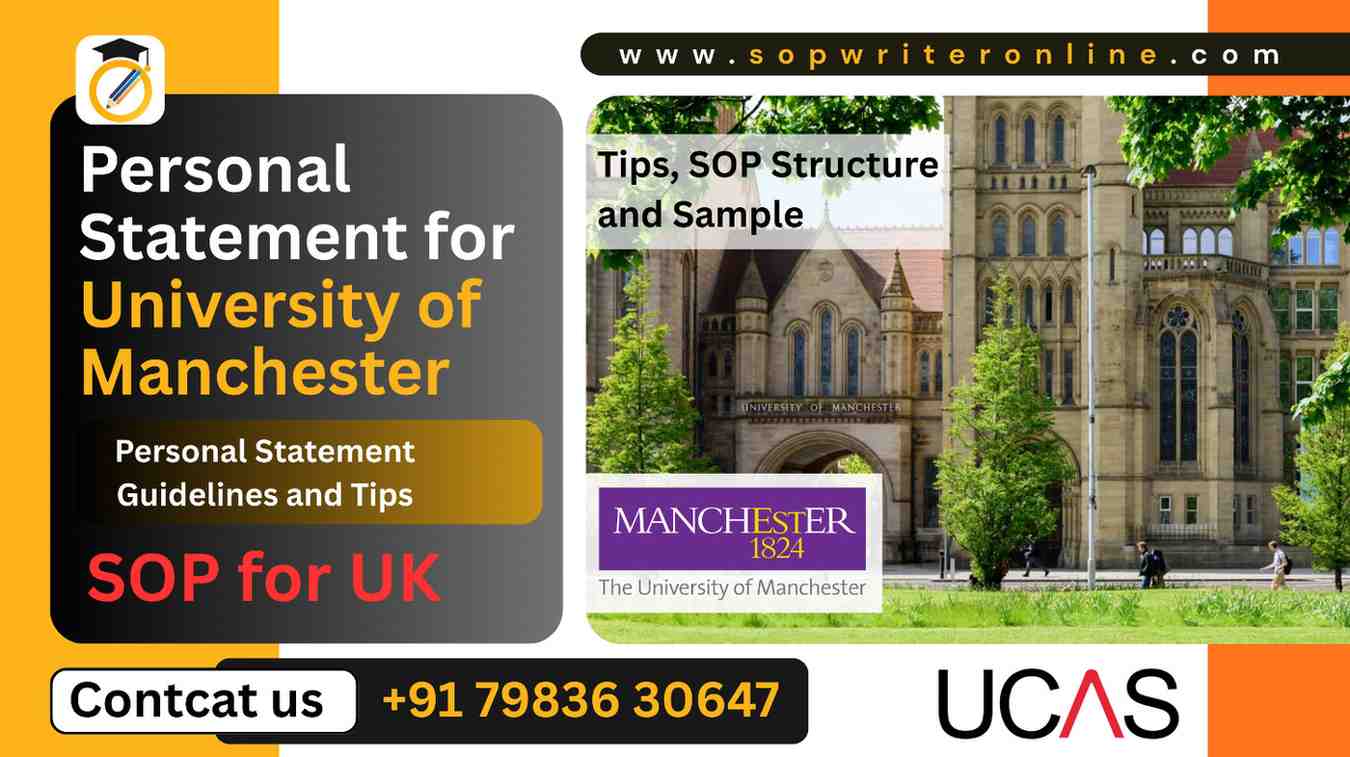
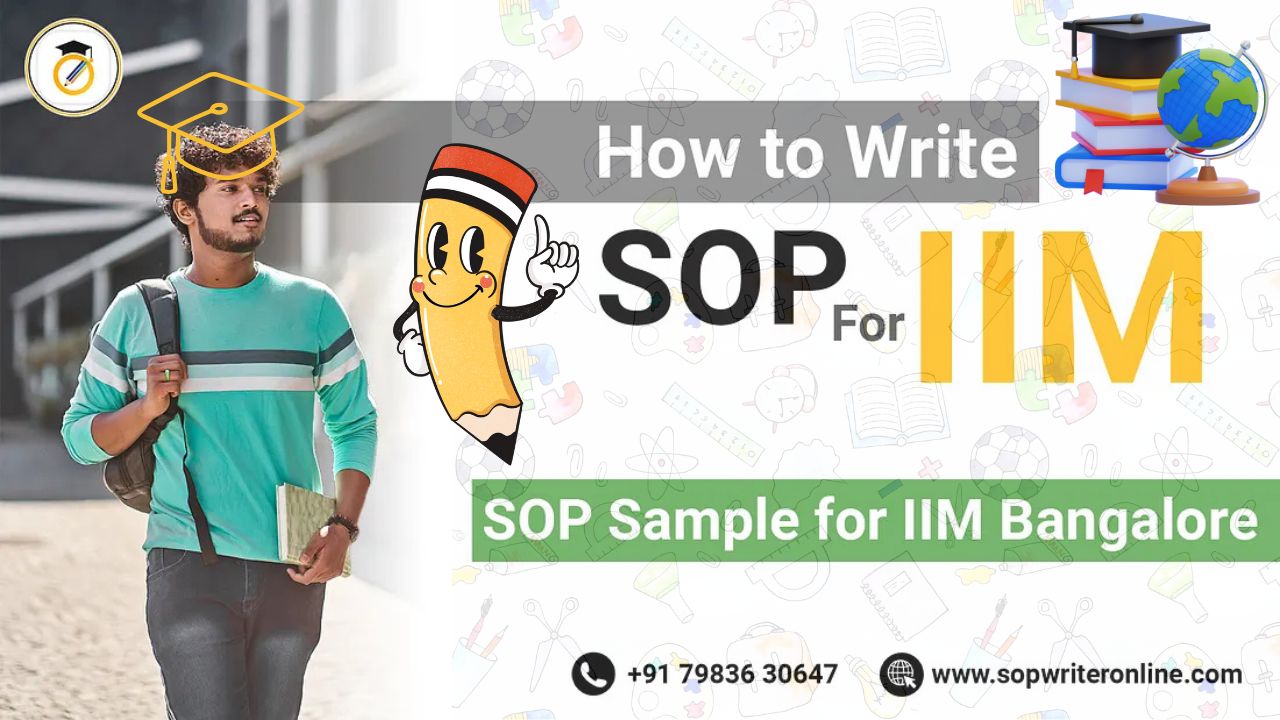

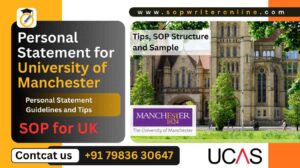








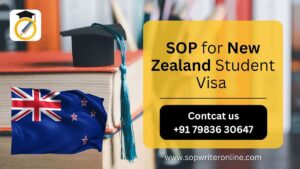
Post Comment